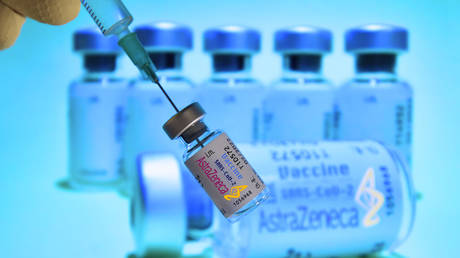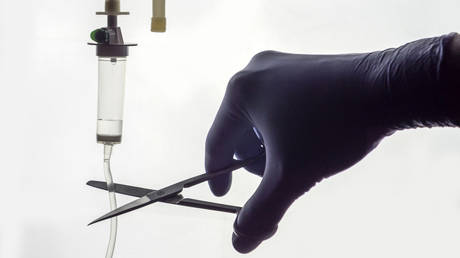
A seemingly strange phenomenon of a smaller dose of the Oxford-AstraZeneca Covid-19 vaccine being more effective than a bigger one is reportedly explained by it first being tested on a younger group.
On Monday, the pharmacological company announced that its AZD1222 vaccine for Covid-19, which is based on a common cold virus that causes infection in chimpanzees, has an efficacy of 70 percent. The number is average for two slightly different tests. One involved people, who received half a dose of the vaccine, followed by a full dose a month later, while the larger second group took full doses for both shots. Counterintuitively, the first regimen showed 90 percent efficacy, compared to 62 percent for the second group of subjects.
A larger dosage usually produces a stronger immune response, so the discrepancy made some experts wonder. Apparently, AstraZeneca omitted a key detail of their study that explains the results, Bloomberg reported on Tuesday citing Moncef Slaou, the head of the US Operation Warp Speed program.
The half-dose variant was tested on people aged between 18 and 55, while the full-dose test included elderly people. Younger people tend to have stronger responses to some kinds of vaccines. AstraZeneca earlier said their study has proven a strong response among the elderly. The difference in dosage was not by design but rather due to an error in the quantity of vaccine put into some vials, according to Slaou.
The British-Swedish multinational is one of many vaccine producers racing to offer their products to nations worldwide. Many have published preliminary results of their studies, which indicate a better-than-expected efficacy, boosting public optimism about overcoming the Covid-19 pandemic. Publications of their full reports in peer-reviewed scientific journals are still in the pipeline, however.
Western frontrunners in the vaccine race expect fast-track approval by drug regulators, but AstraZeneca’s snafu may come at a cost, some experts believe.
“I don’t believe that the FDA will look positively at any trial where the dose, or the age cohorts, or any other variable were changed mid-trial, inadvertently or deliberately,” said Geoffrey Porges, an SVB Leerink analyst who predicted on Monday that the US Food and Drug Administration would not clear the vaccine.
Like this story? Share it with a friend!




